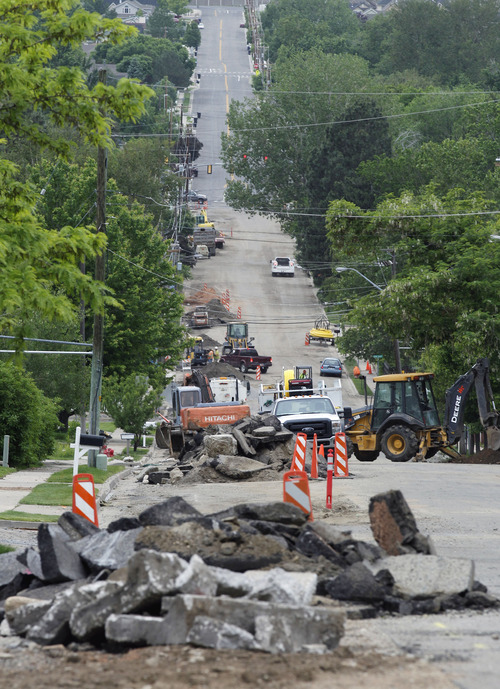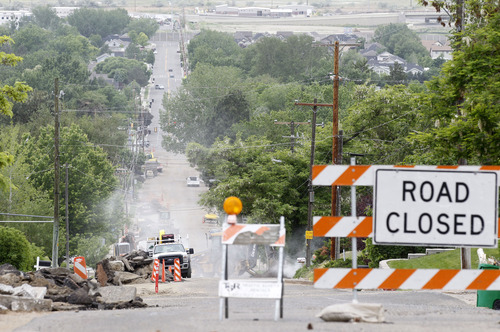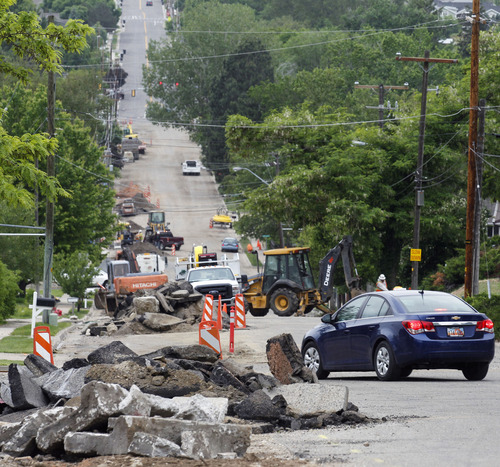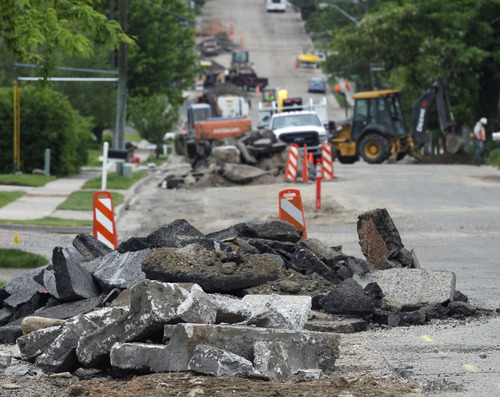This is an archived article that was published on sltrib.com in 2013, and information in the article may be outdated. It is provided only for personal research purposes and may not be reprinted.
As they prepare their fiscal 2014 budgets, Davis County cities have at least one thing in common: Despite the official end of the recession four years ago, its impact is seen in the revenue and expenditure columns.
Some budgets are showing growth, but money is still tight and municipalities are looking for ways to stretch their dollars. Tax increases appear to be off the table in Davis County as the cities find other ways to balance budgets while still providing services at a desired level.
"I think what affects all cities is that sales tax revenue statewide is down," Centerville Mayor Ron Russell said.
Sales tax is split statewide, half at the point of sale and half distributed based on a city's population. In some cities, that revenue has started to bounce back, but generally the amount is still less than what had been projected pre-recession.
Woods Cross says the decline of sales tax and construction-related revenue has led it to defer capital projects and purchases of major equipment. The city's goal is to strengthen its commercial base to ensure a steady growth in revenue, with plans underway to develop the area around the 500 South Interchange into an employment center.
Centerville also cut back on street work and its tentative budget falls about $350,000 short of the amount proposed for maintenance. City Manager Steve Thacker said a property tax increase was one possibility to close the gap, but the City Council rejected that option.
Instead, the elected officials are hoping the Utah Legislature will do something with gas taxes to help cities. Russell believes Centerville will fully recover from the economic downturn eventually, but for now it will still struggle a little with the sales-tax dip
Some cities are proposing increases in fees for water, sewer and street lighting. In Syracuse, with utility expenses going up, officials are discussing passing along some of the costs. City administrators acknowledge in a budget summary that rate increases are never popular.
"However, we all must realize that the cost of living in our city, state and country continues to rise," the summary says. "The consumer price index increased 3 percent in Utah last year and 2 percent nationally. This means that the cost to the city to provide utilities to our citizens is also increasing."
Cities are seeing signs of better days. North Sale Lake Mayor Len Arave said homebuilding is up, and Clearfield Mayor Don W. Wood says the Freeport Industrial Park is providing a solid source of sales and property tax. And Layton is continuing to regain the revenue it lost during the recession.
In its budget summary, Syracuse notes the "economic uncertainty on the horizon," but also sees promising statewide trends, including home sales up 12.6 percent over last year and an unemployment rate down to 5.2 percent.
"Overall, Utah's economy is one of the strongest economies in the nation," the city says. "Utah is recovering from this recession faster than most other states in the nation."
Reporter DJ Summers contributed to this article.









